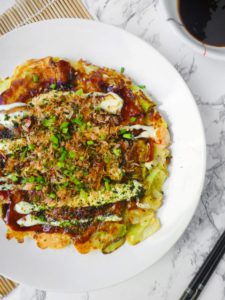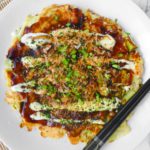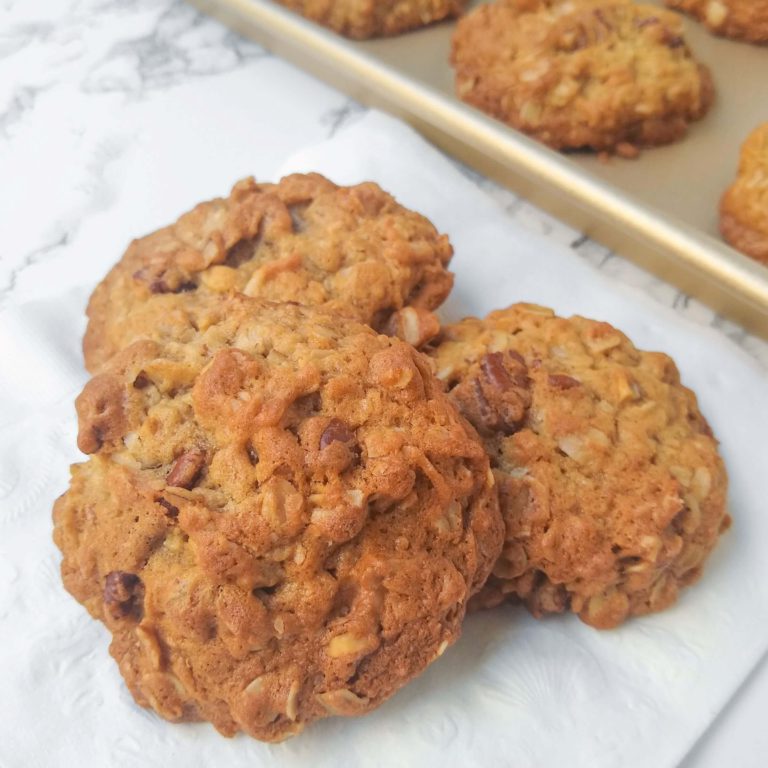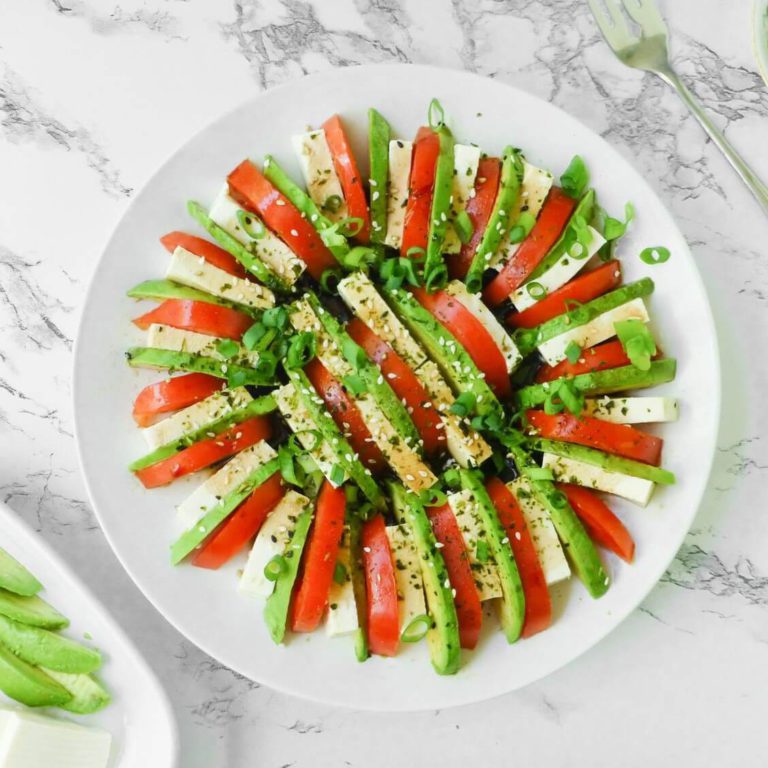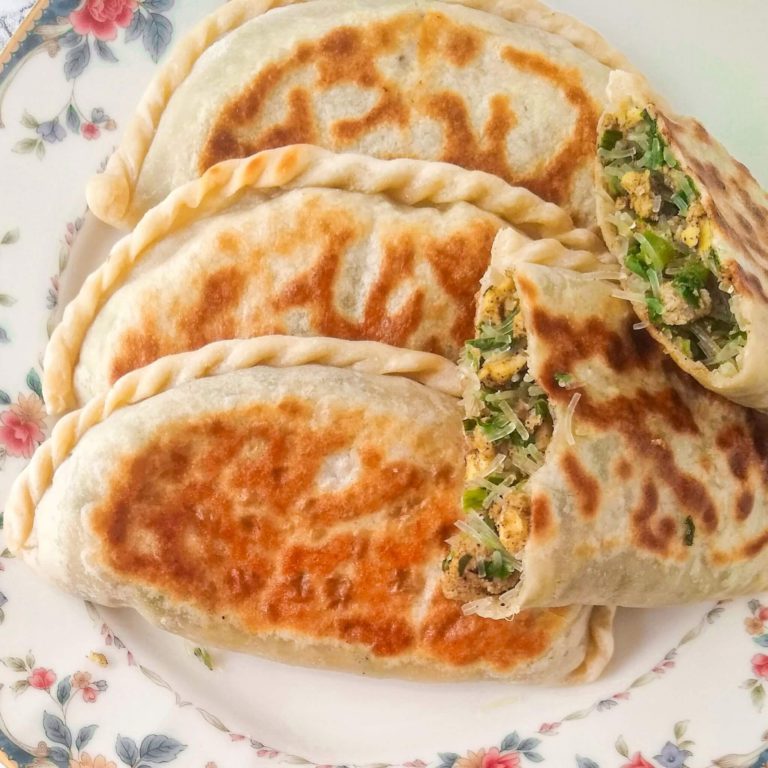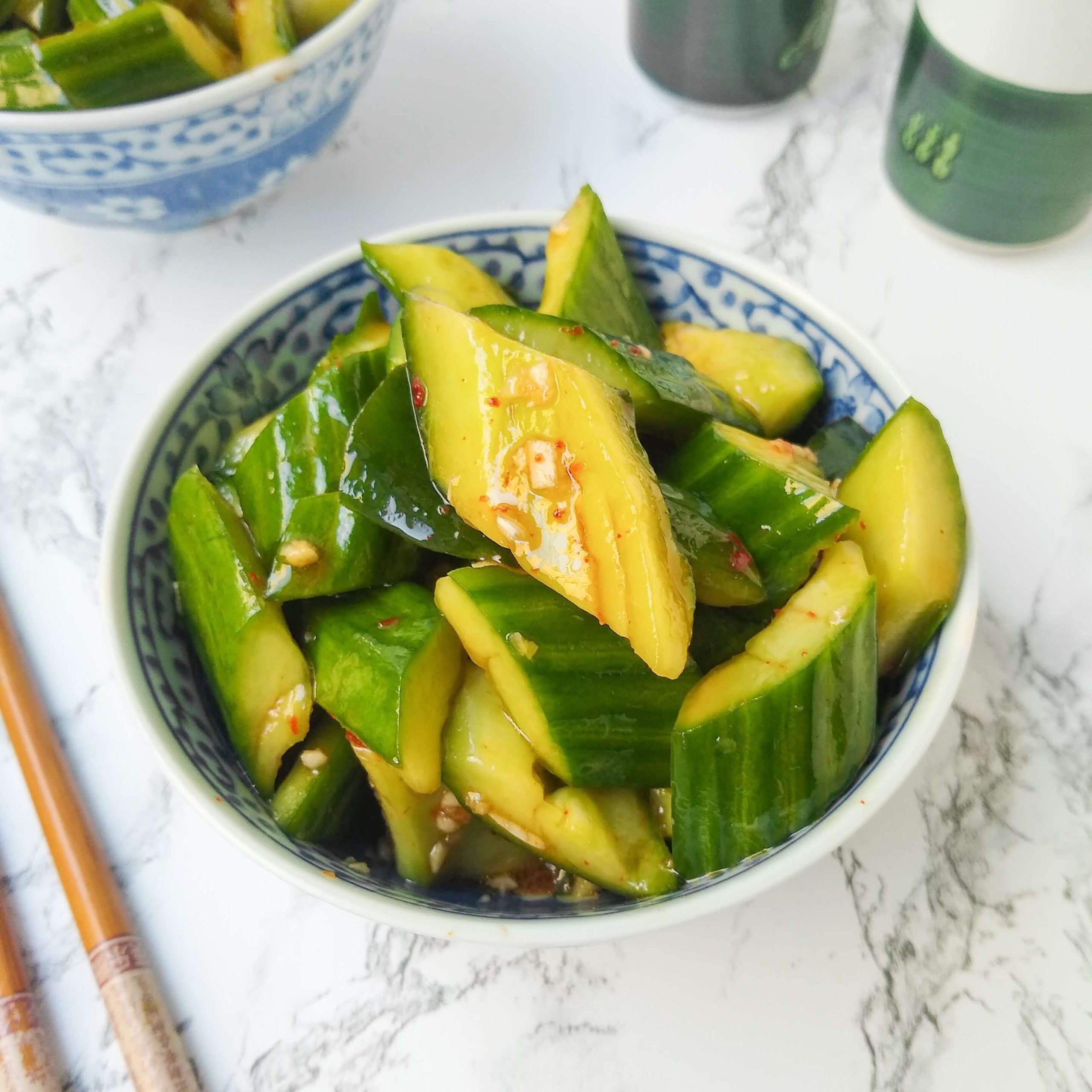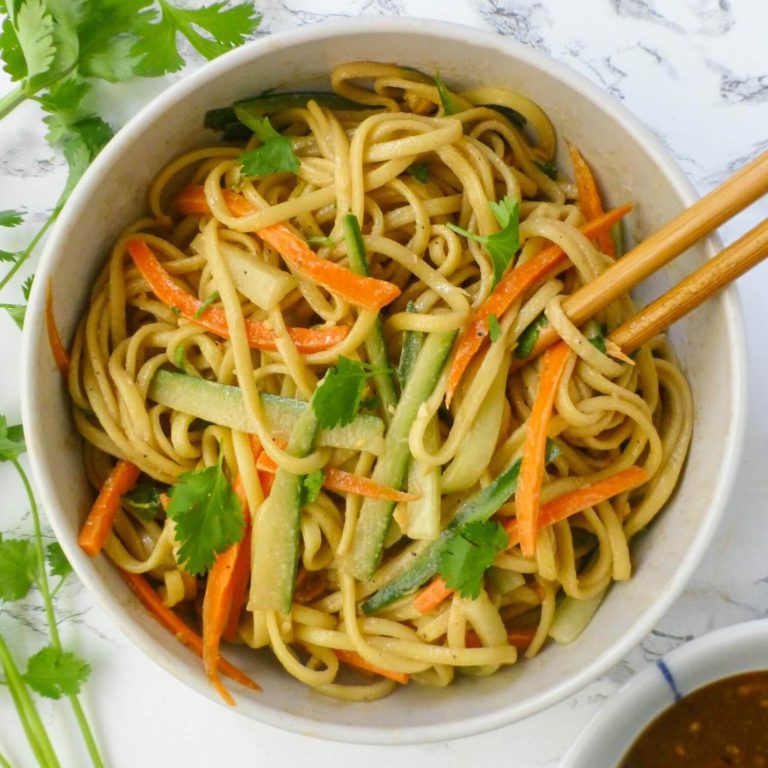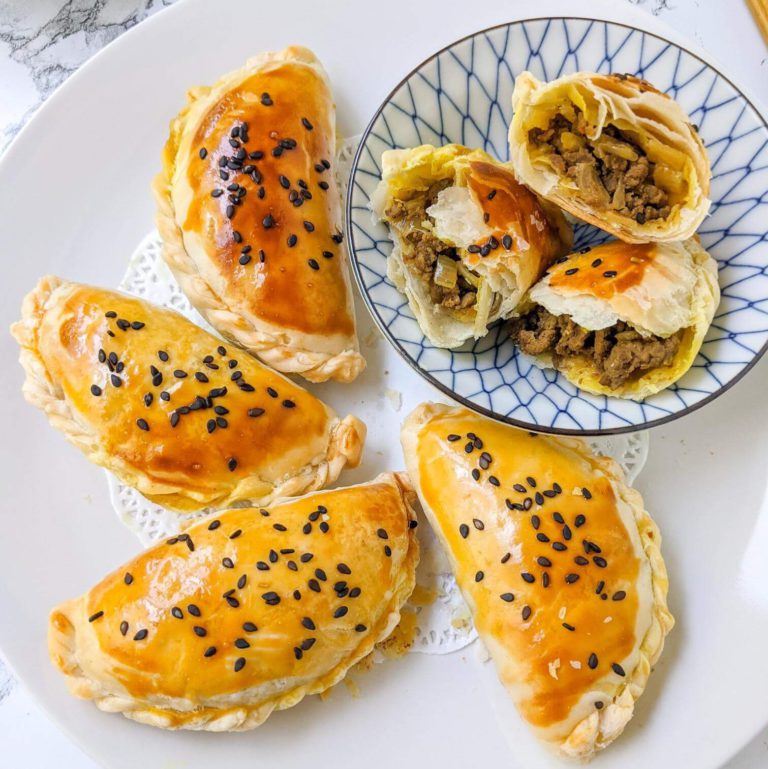Okonomiyaki, Osaka-Style
Okonomiyaki is a savory cabbage pancake popular in Japan. This recipe is the Osaka-style pancake that has a soft interior filled with seafood and pork belly.
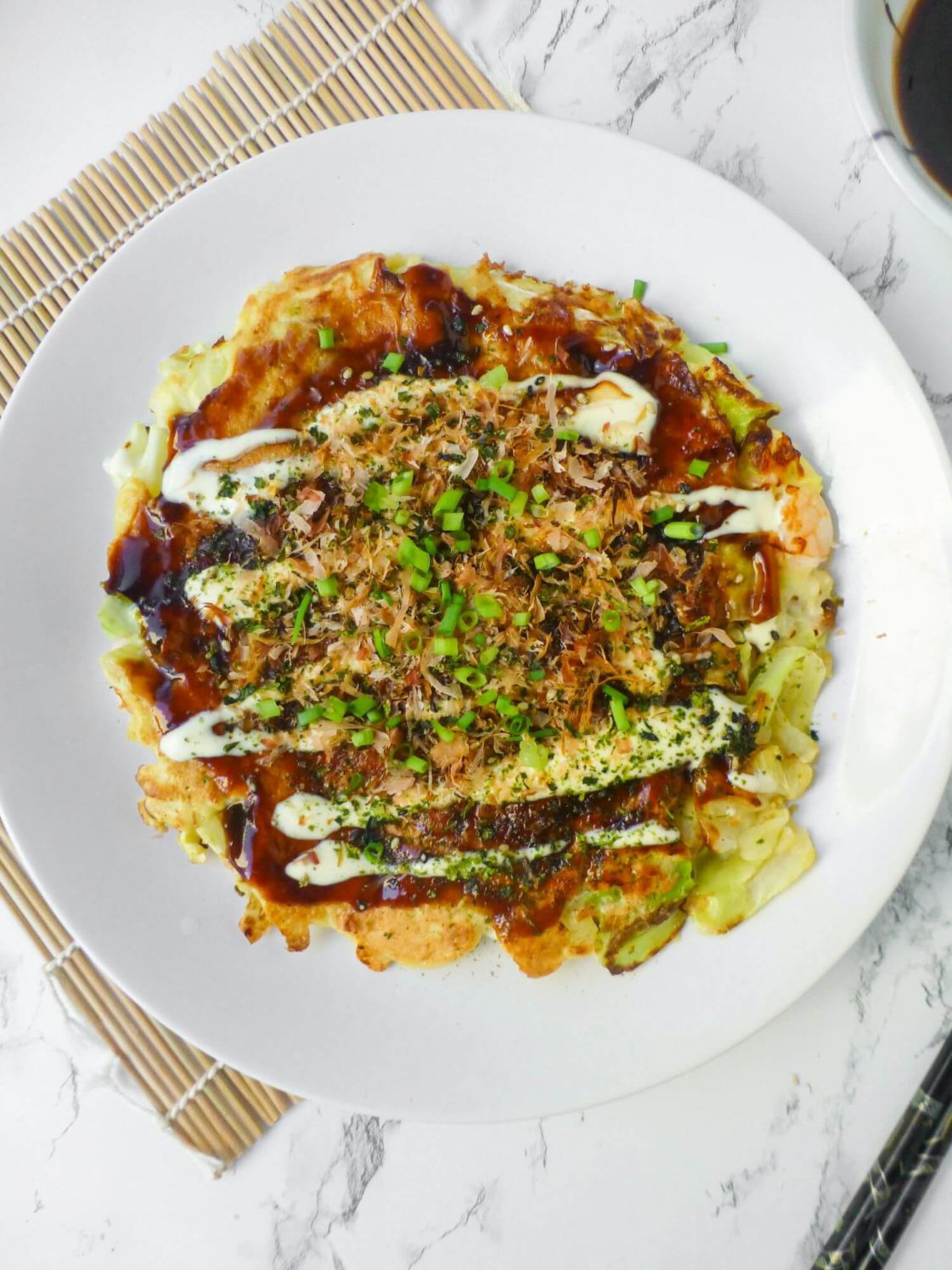
When I tried Osaka okonomiyaki for the first time in Japan, I was fascinated by its delicious combination of ingredients. Okonomiyaki is a popular street food in Japan made of flour and cabbage and has many possible additions. The name comes from two Japanese words: okonomi and yaki. Okonomi means “as you like it,” and yaki means fried. To customize okonomiyaki, you can add ingredients such as seafood, pork belly, noodles, and cheese.
There are two main types of okonomiyaki: Hiroshima-style and Osaka-style. The Hiroshima-style consists of several layers: a crepe pancake, cabbage, bean sprouts, pork belly slices, noodles, and an egg pancake. The layers are assembled and then topped with okonomi/okonomiyaki sauce, dried seaweed, and a generous mound of green onions. Osaka okonomyaki is also referred to as Kansai-style, meaning western Japanese. This version mixes eggs, flour, cabbage, and fillings into one batter. After pan-frying the batter, the pancake is topped with okonomi sauce, katsuobushi, Kewpie mayonnaise, and dried seaweed. Since the Osaka-style combines all of the ingredients before cooking, it is easy to replicate at home!
Most traditional okonomiyaki includes the ingredients nagaimo, tempura scraps, and pickled red ginger. However, you can choose to omit these ingredients if you want a simple and easy recipe to make at home.
Note on the addition of Nagaimo:
- The grated nagaimo acts as a binder for the pancake. It also makes the texture of the Osaka okonomiyaki soft and fluffy. If you do not have nagaimo, you could try either adding an extra egg or adding some extra flour and dashi.
You can read more about this special ingredient here.
Okonomiyaki (Osaka-style)
Ingredients
Batter
- 1 cup all-purpose flour 120 g
- 1/2 tsp salt
- 1/2 tsp baking powder
- 3 inches Nagaimo 170 g, Note 1
- 3/4 cup dashi
- 1 large cabbage 760 grams, or 1 & 2/3 lbs
- 4 large eggs
- ½ cup Tenkasu tempura scraps, optional
- 2 tbsp Beni-shoga pickled red ginger, optional
- 1/2 – 1 lb seafood cubed (optional)
- Pork belly slices halved (optional)
Okonomi Sauce
- 1 Tbsp sugar
- 2 Tbsp oyster sauce
- 4 Tbsp ketchup
- 2 Tbsp Worcestershire sauce
Toppings
- Okonomi sauce
- Kewpie mayonnaise
- Bonito flakes
- Aonori dried seaweed
- Scallions chopped
Instructions
- In a large bowl, mix the flour, salt, and baking powder.
- Peel and grate the nagaimo. Add the grated nagaimo and dashi into the bowl, and mix to combine.
- Core and roughly chop the cabbage.
- Add the cabbage and the rest of the batter ingredients (expect the optional pork belly) into the bowl and mix.
- Heat oil in a large skillet over medium heat. Add some batter into the pan and shape it into a circle.
- Place a few slices of pork belly on top, if using, and add some more batter on top to help the pork to stick.
- Cook the pancake until browned on the bottom. Flip and cook until the other side is also browned.
- Mix all sauce ingredients together.
- Add the okonomi sauce and your desired toppings to the okonomiyaki and serve.
Notes
- See the post above for more information about Nagaimo substitutions
How to Make Osaka Okonomiyaki
Prepare the Batter
Start by mixing the flour, salt, and baking powder in a bowl. Wash and peel the nagaimo. Then, grate the nagaimo and add it to the batter. The root will turn super gloopy and sticky, which will help the pancake to hold its shape. Add the grated nagaimo and dashi into the bowl and mix well to combine. If you do not have dashi, you can also try using a different stock to substitute.
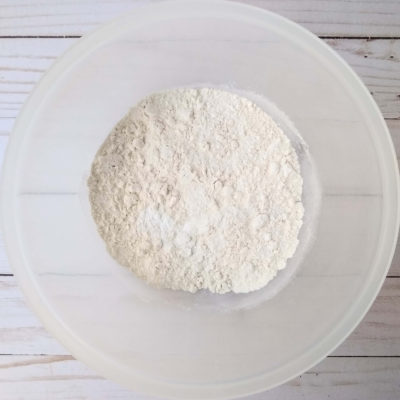
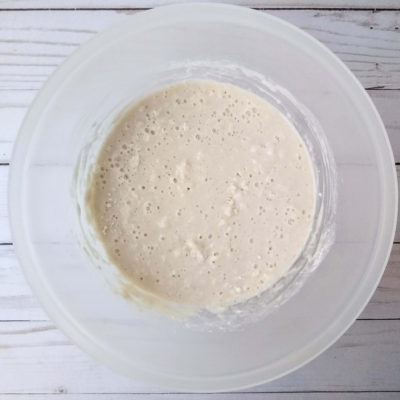
Then, wash the cabbage and chop it into long slices. Try not to cut the cabbage too thinly/small, or else it will be harder to flip and more prone to fall apart. Add the chopped cabbage into the batter along with the eggs, Tenkasu (fried tempura batter), and Beni-shoga (pickled red ginger). The Tenkasu helps to lighten the batter by introducing little pockets of air.
Do not worry if you do not have this ingredient or the pickled ginger, as the pancake will still taste great without them! If you would like to add seafood to your pancake, you can also mix some in at this stage. Cut any larger pieces of seafood into cubes first before adding them to the batter.
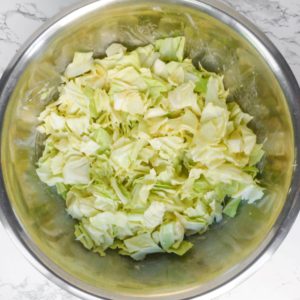
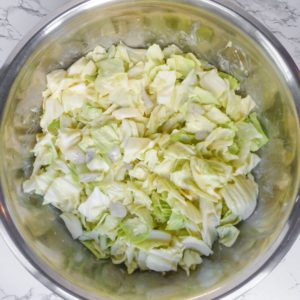
Cook the Pancake
Heat some oil in a nonstick skillet over medium heat. Add 1/4th of the pancake batter to the skillet and shape it into a circle. Cover and let the pancake cook until it has browned nicely on the bottom, around 3-5 minutes. Flip and let the pancake cook until the other side has also browned nicely. Transfer the cooked pancake to a plate and repeat with the remaining batter.
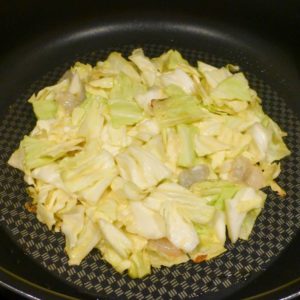
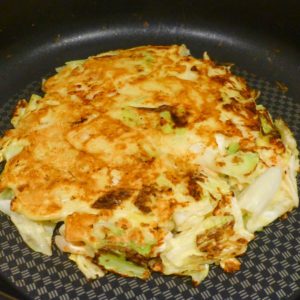
If you would like to add some pork belly to your pancake, lay strips of pork belly on top of the pancake after adding the batter to the pan.
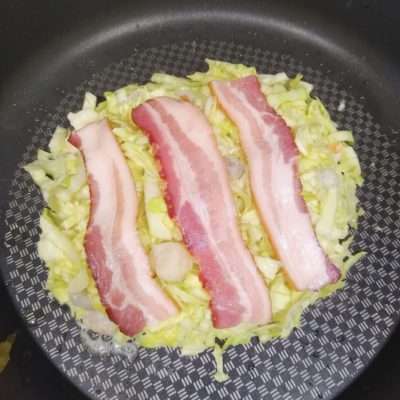
Serve the Osaka Okonomiyaki
Mix the Okonomi sauce ingredients in a bowl. Spread a spoonful onto the pancake and drizzle Kewpie mayonnaise on top. Garnish with bonito flakes, Aonori (dried seaweed), scallions, and more Beni-shoga (optional).
